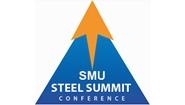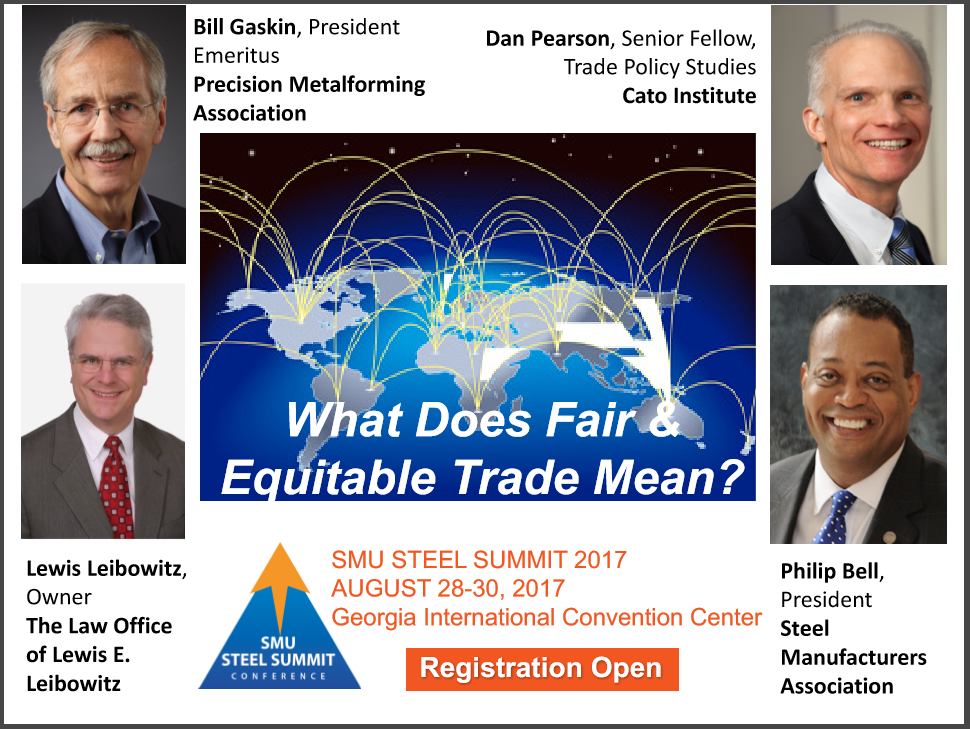Product

July 20, 2017
SMA’s Bell to Advocate for Minimills at SMU Steel Summit
Written by Tim Triplett
Phil Bell is a brave man. The president of the Washington-based Steel Manufacturers Association (SMA) has volunteered to serve on a trade panel during Steel Market Update’s Steel Summit Conference next month in Atlanta. He knows full well that his fellow panelists—a trade lawyer, a manufacturers’ advocate and a spokesman for a libertarian think tank—will undoubtedly challenge his views on trade and Section 232. But they are views he believes in.
![]() Joining Bell on the trade panel will be Washington attorney Lewis Leibowitz; William Gaskin, president emeritus of the Precision Metalforming Association; and Dan Pearson of the Cato Institute and former chairman of the ITC. The mix of perspectives should make for a spirited discussion.
Joining Bell on the trade panel will be Washington attorney Lewis Leibowitz; William Gaskin, president emeritus of the Precision Metalforming Association; and Dan Pearson of the Cato Institute and former chairman of the ITC. The mix of perspectives should make for a spirited discussion.
Bell’s comments undoubtedly will touch on the trade debate in Washington over Section 232. SMU’s Steel Summit Conference is Aug. 28-30 at Atlanta’s Georgia International Convention Center. Much could change in the next month. “The delay in the 232 report is a bit of a cause for concern. I hope they are just taking their time to get it right,” he told SMU. “Things have gotten a little more complicated now with the G20, the China talks and the NAFTA renegotiations. All of this is kind of interwoven into the 232.”
By late August, Bell said he will either offer conference attendees a status report on the trade situation or his views on the remedies proposed by the administration in Washington.
SMA, which represents minimills in the electric arc furnace segment of the steel industry, made its views clear in a recent op-ed piece. The American steel industry is facing a crisis that endangers U.S. national security, and it’s time for decisive action. SMA is advocating strongly for a new steel tariff, rather than a quota system or some other mechanism. “A tariff is the simplest, the most easily administered and the most immediately effective action possible. It should cover all products (including semifinished slabs) from all countries, with very limited exceptions.”
Whatever happens between now and the conference, expect Bell to make a strong case for trade action, and for the competitiveness of America’s EAF steel producers. “Everyone acts like this [232] is the end of the world and it’s going to start a trade war. In my estimation, the trade war has already started. We’ve been fighting it for many years, we’ve taken a lot of casualties, and we are losing.”
You can find more details about our 7th SMU Steel Summit Conference on our website or you are welcome to contact one of our offices at 800-432-3475 or 706-216-2140.








